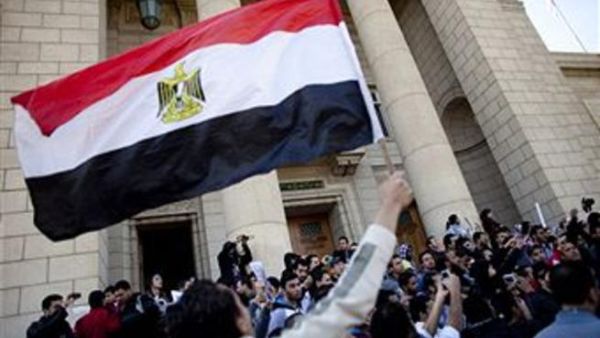Financial experts and institutional investors said at a conference organised by Gulf Capital that the medium to long-term outlook for investing in Egypt remains positive, despite the current political uncertainties in the country.
The conference was attended by over 30 international and regional institutional investors, including Sovereign Wealth Funds, Pension Funds, Family Offices, banks and financial institutions. His Excellency Tamer Mansour, Ambassador of the Arab Republic of Egypt in the UAE, Mr Mohamed Al Hawary, Counsellor at the Embassy of Egypt in Abu Dhabi and Mr Maher El Sherif, Head of Egyptian Commercial Services Office in Abu Dhabi, were also present at the event.
The conference, which was held to discuss the regional landscape and opportunity creation for Private Equity players and institutional investors, remained firm on the long-term outlook for Egypt, supported by the solid fundamentals in the country, the new monetary policies introduced by the Central Bank and Ministry of Finance, and the recent measures and investment dispute settlement law introduced by the interim government and legislative body to encourage and protect investments in general, and Foreign Direct Investments (FDIs) in particular.
“These measures had an immediate and direct impact, sustaining a reasonable level of strategic direct investments recorded in the past twelve months,” according to visiting speaker at the conference, Mrs Neveen El Shafei, Vice Chairman of Egypt’s General Authority for Investment and Free Zones (GAFI), the government organisation which facilitates investments from both local and foreign companies.
“Many international and foreign investors from a diversified array of industries have been eying Egypt for some time, but have started moving in closer to concluding deals and setting up operations in the country. In the past twelve months, Egypt saw high-profile international and regional investors from the Automotive, Information, Communications and Telecommunications (ICT), Oil & Gas, Real Estate and Retail sectors expand their existing investments. These include marquee global brands such as Toyota (automotive), Intel (IT), France Telecom (telecommunications) and Apache (Oil & Gas),” said Mrs Nevene EL Shafei.
More direct private institutional investors and Private Equity firms are expected to have conclusive deals, once the International Monetary Fund (IMF) finalises its anticipated US$3.2 billion loan to Egypt. Lending from other major international financial institutions, including the World Bank, the African Development Bank (ADB) the Islamic Development Bank (IDB) and the European Bank for Reconstruction and Development (EBRD), is expected to follow. The Deauville Partnership has also announced pledges to Egypt.
“Egypt’s growth rate decreased to 1.8 percent in the last fiscal year 2010-2011, with FDIs dropping to $2.2 billion and an unemployment rate of 12 percent. However, the mid to long-term outlook for Egypt remains positive. Post-June 2012 (Presidential Elections), there will be more clarity in the political scene, and some FDIs currently taking a ‘wait-and-see approach’ are expected to move from the sidelines to centre stage, becoming active players in the economy,” she explained. Through its location, Egypt is also a gateway to Africa, which companies are already capitalising on by using the country as a hub for expansion to various African countries.
Karim El-Solh, Chief Executive Officer of Gulf Capital which organised the conference, said, “Egypt presents Private Equity firms with major opportunities. It has a large base of small and medium size enterprises (SMEs), a large, young and growing population, a rising consumption power and a competitive rate for doing business. The Egyptian government has been encouraging FDIs to invest in job-creating sectors, and Gulf Capital is already exposed to Egypt through a number of its portfolio companies. The country presents a sound, risk-adjusted proposition for our investors as well as offers us geographic diversification in a market that is driven by a strong home-grown demand.”
Neveen El Shafei added, “This is a pro-investment government, and this is corroborated by the many policies it introduced to encourage and protect investors’ interests in Egypt, both on the legislative and monetary fronts. In January this year, a new investor dispute law was passed to allow for amicable settlement between investors and government. The Central Bank’s astute and wise management of the currency.








